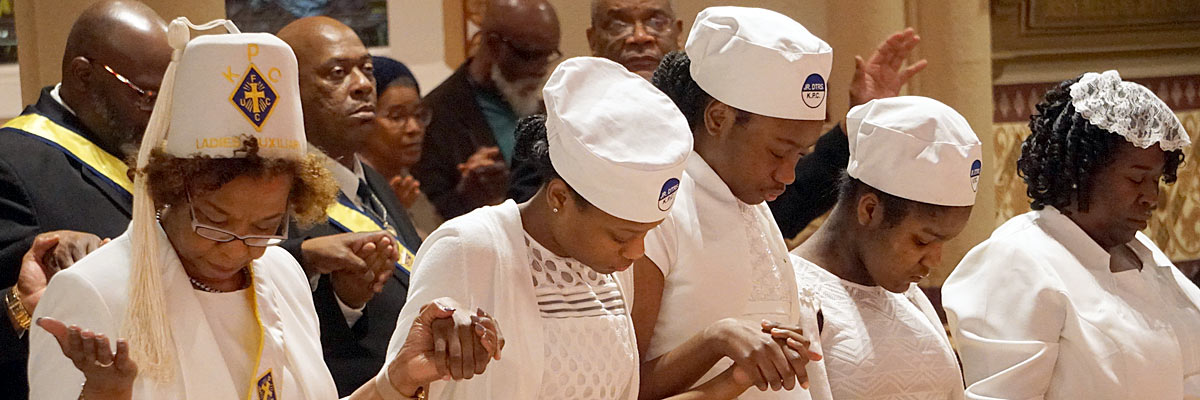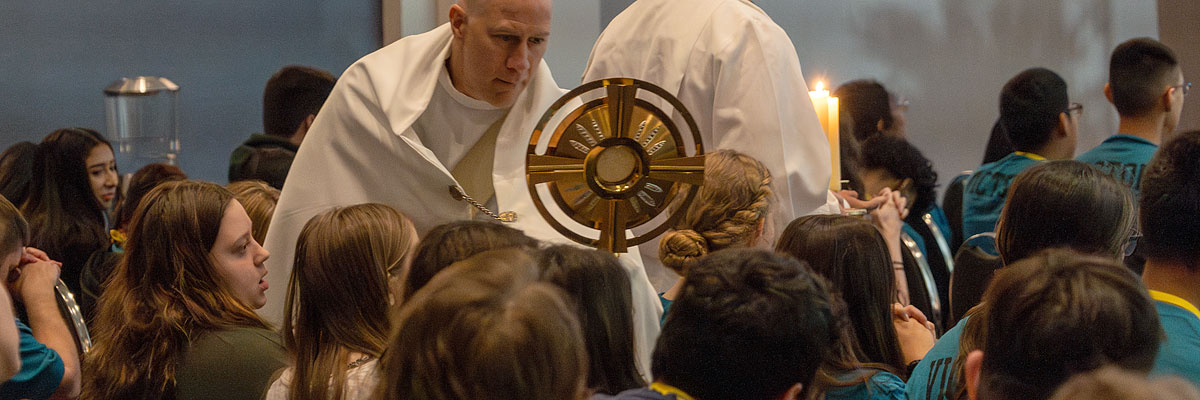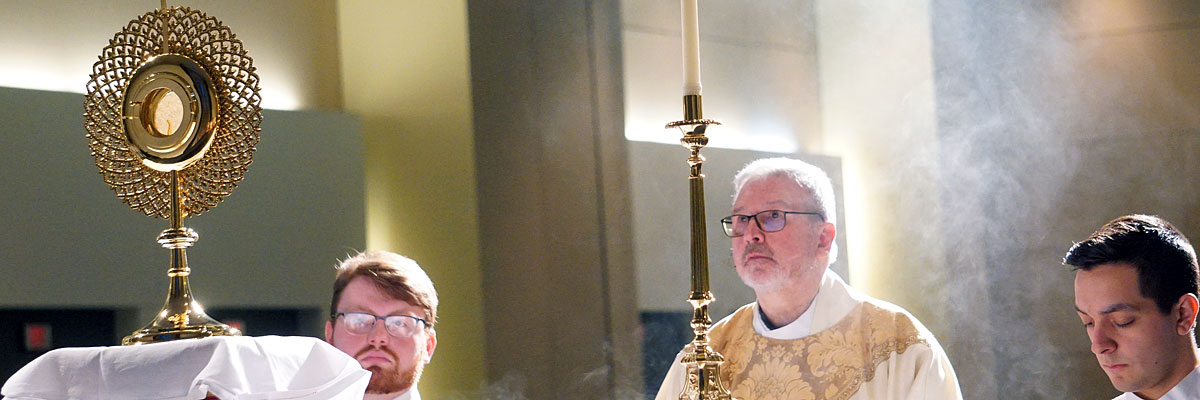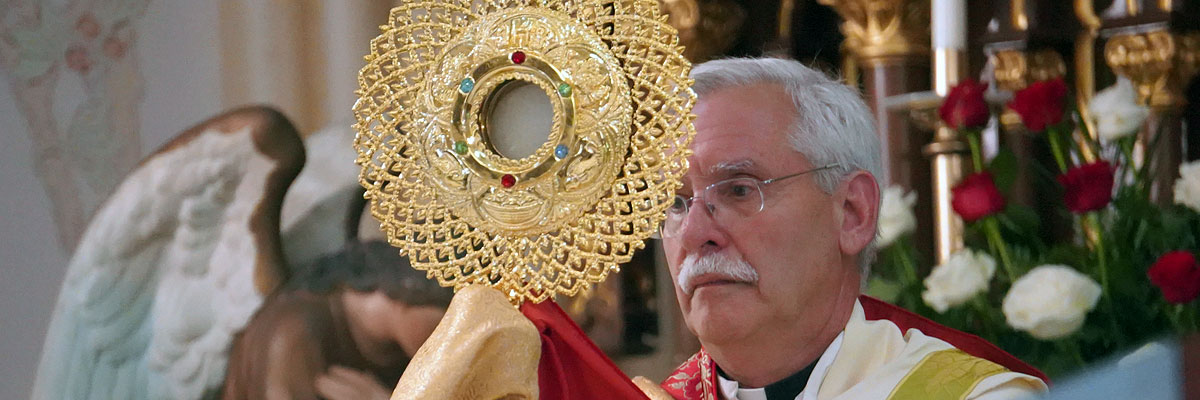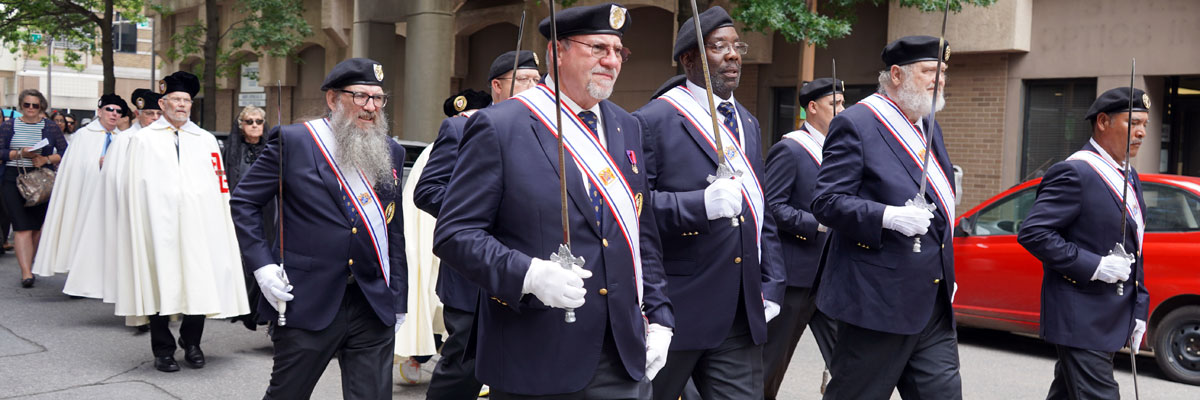Official Website of the
Catholic Diocese of Little Rock
29th Sunday in Ordinary Time, Year C
Published: October 20, 2019
Bishop Anthony B. Taylor preached the following homily at the Cathedral of St. Andrew in Little Rock on Saturday, Oct. 19, 2019 and during the Hispanic Catholic Charismatic Renewal Conference at the Fort Smith Convention Center on Sunday, Oct. 20, 2019.

Bishop Taylor
One of the things I have practiced and promoted throughout my priesthood is eucharistic adoration. Over the years my daily holy hour, which I spend — whenever possible — before the Blessed Sacrament has brought many blessings to me personally and I can attest that eucharistic adoration has also brought many blessings to the parishioners in the parishes I have served.
Adorers feel closer to Jesus and are more fully aware of his real presence among us in the Eucharist. Moreover, adoration is not only for the especially pious. Indeed, it is we who have problems who most need the strength and comfort we find spending time with Jesus.
In today's Gospel Jesus tells a story to teach us that we must pray persistently. A woman pesters a judge relentlessly to remedy a wrong she has suffered and finally he gives in — just to get rid of her. Jesus says that if persistence pays off even in dealing with evil men, how much more will it pay off when praying to God!
And above and beyond whatever benefits others may receive from our prayer and good deeds, these acts of piety and service benefit us who pray — indeed, they are the means by which we become saints.
But this does raise a question: If God knows everything, why do we have to ask him for what we need? He already knows our needs and unlike the woman who had to be persistent to get what she needed from a corrupt judge; God only wants what is best for us — so why do we have to be persistent with him?
At first glance it seems like the widow's persistence changed the judge, but notice: He may have changed his mind about what was expedient in this particular instance but he himself remained the same corrupt man as before. It's the woman who changes.
Her persistence in the face of obstacles stretches her, strengthens her and makes her fearless. Indeed, her strength of character became so great that the judge began to fear that she might do him harm. He says: I shall deliver a just decision for her lest she finally come and strike me. How likely do you think that was? But even he could see how much stronger her persistence had made her.
That is why Jesus insists that we should pray always without becoming weary. Persistent prayer changes us, not God. It stretches us and strengthens us to confront evil and overcome obstacles. It fills us with power and light. To grow in holiness, we have to keep at it. And above and beyond whatever benefits others may receive from our prayer and good deeds, these acts of piety and service benefit us who pray — indeed, they are the means by which we become saints.
Jesus says to pray persistently not because God is hard to convince, but rather because our sinful human character is hard to change and does change only gradually. One of the main reasons God doesn't answer all our prayers just right away is that he wants to stretch us and cause us to open ourselves to trust more fully in God's grace and thus develop in us that spiritual fortitude which is the fruit of persistence ... and thus become disciples who will do his will faithfully and with self-sacrificing courage and love, regardless of the challenges and obstacles we face.
So what troubles are you dealing with right now? The woman in the parable was facing mistreatment and injustice. Jesus uses this story to assure us that God will vindicate, secure the rights of, all who pray to him persistently day and night. Your troubles may be different, but God's promises are as true for you as they were for her.
So, turn to him and spend time in his presence and learn from him. Ask him to make you courageous in times of trouble and loving when you feel hate. Ask him persistently to mold you into the saint he wants you to be.


